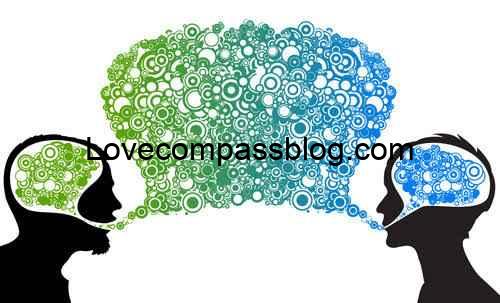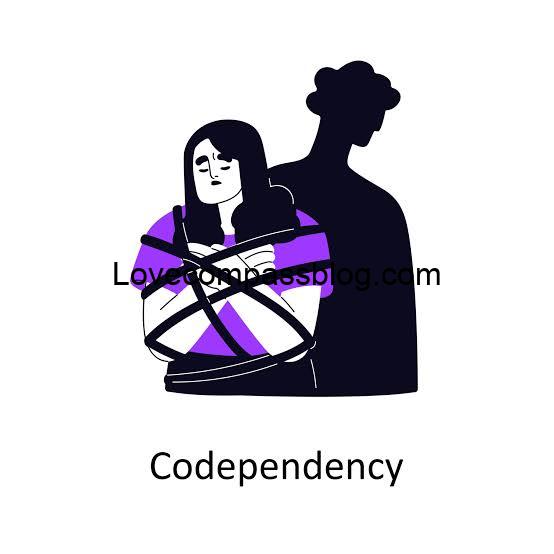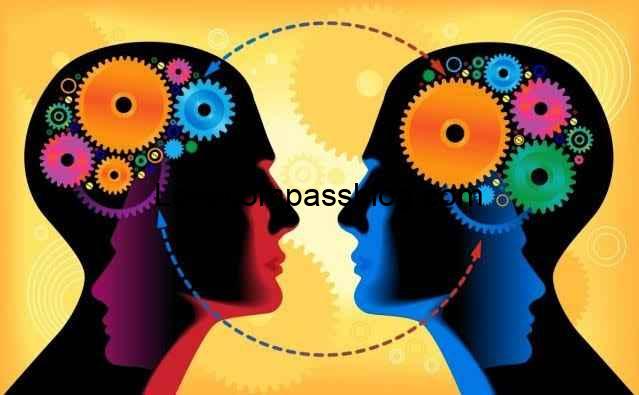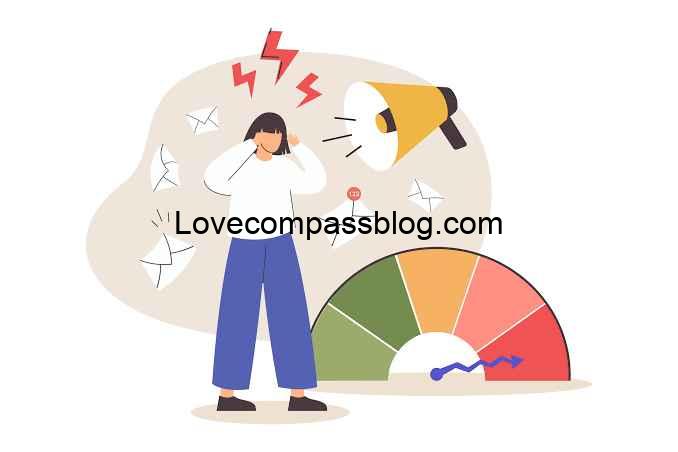Understanding and Handling Relationship Anxiety: A Comprehensive Guide

Relationship anxiety is a significant and often distressing experience that many individuals encounter in their romantic lives. It involves persistent fears and worries about various aspects of the relationship, which can lead to emotional turmoil and strain. Understanding the nature of this anxiety, identifying its causes, and implementing strategies to manage it are crucial steps toward maintaining a healthy relationship.
What is Relationship Anxiety?

Relationship anxiety is the continuous feeling of unease or dread concerning one’s romantic relationship. This type of anxiety is distinct from typical relationship concerns, as it is pervasive and often not tied to any specific event or issue. Individuals with relationship anxiety may frequently question the stability of their relationship, their partner’s feelings, or their own worthiness of love.
Distinguishing Relationship Anxiety from Gut Feelings
Understanding the difference between relationship anxiety and gut feelings is essential. Gut feelings, or instincts, are typically rooted in an individual’s subconscious awareness of underlying issues in the relationship. They can often point to legitimate concerns that need to be addressed. On the other hand, relationship anxiety is usually irrational, stemming from insecurities or past experiences rather than current realities. Misinterpreting gut feelings as anxiety or vice versa can lead to confusion and mismanagement of emotions.
Recognizing Symptoms of Relationship Anxiety
Symptoms of relationship anxiety can manifest in various ways, both emotionally and physically. Common signs include:
- Persistent doubts about the relationship, despite no clear reasons for concern.
- An overwhelming fear of being abandoned or rejected.
- Constantly seeking reassurance from your partner about their feelings.
- Overthinking minor issues or conversations, turning them into significant concerns.
- Physical symptoms such as restlessness, difficulty sleeping, or tension when thinking about the relationship.
Recognizing these symptoms is the first step in addressing the anxiety.
Causes of Relationship Anxiety
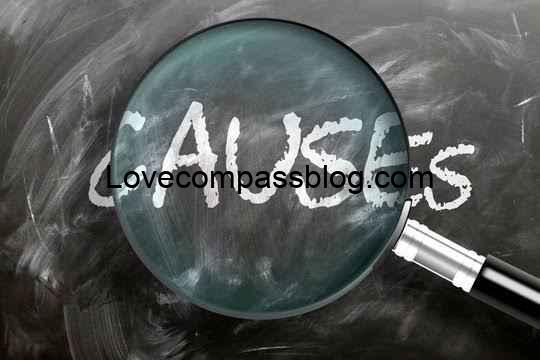
Attachment Styles and Insecurity
One of the primary contributors to relationship anxiety is attachment anxiety, which is often linked to insecure attachment styles formed in early childhood. Individuals with an anxious attachment style tend to feel overly dependent on their partner for emotional support and validation. They may fear rejection or abandonment, leading to heightened anxiety in romantic relationships. Insecurity, whether due to low self-esteem or past experiences, further amplifies these fears.
Fear of Commitment and Intimacy
The fear of commitment and intimacy is another significant cause of relationship anxiety. Commitment can feel overwhelming for some, especially if they associate it with loss of freedom or fear the possibility of being hurt. Intimacy, which requires vulnerability and openness, can trigger anxiety in individuals who fear getting too close or being emotionally exposed. These fears can lead to self-sabotaging behaviors, where individuals might unconsciously create distance in their relationships to protect themselves from potential pain.
Trust Issues and Fear of Abandonment
Trust issues often arise from past relationships where betrayal, dishonesty, or infidelity occurred. These experiences can cause lingering doubts and fears in new relationships, leading to anxiety. Fear of abandonment is closely related and involves a deep-seated worry that one’s partner will leave them. This fear can manifest in various ways, including clinginess, constant need for reassurance, or jealousy.
Overthinking and Self-Esteem Issues
Overthinking is a common trait among those who suffer from relationship anxiety. This tendency to ruminate on small issues, imagining worst-case scenarios, can create significant stress and strain within a relationship. Low self-esteem further exacerbates this, as individuals with low self-worth may constantly question their partner’s love and commitment, feeling undeserving of a healthy relationship.
Identifying and Diagnosing Relationship Anxiety

Using Self-Assessment Tools
Self-assessment tools, such as relationship anxiety tests, can help individuals recognize whether they are experiencing anxiety in their relationship. These tools typically involve questions that gauge the frequency and intensity of anxious thoughts and behaviors related to the relationship. While these tools can provide insight, they should be used as a starting point rather than a definitive diagnosis. It’s important to seek professional help for a thorough evaluation and guidance.
Differentiating Relationship Anxiety from Other Issues
Not all relationship concerns are rooted in anxiety. It’s crucial to differentiate between relationship anxiety and other issues like falling out of love, recognizing red flags, or dealing with actual problems within the relationship. Chronic relationship anxiety involves persistent, irrational fears that are often out of proportion to the reality of the relationship. Conversely, actual red flags or a genuine loss of love are based on legitimate concerns that need to be addressed directly, either through communication or possibly reevaluating the relationship.
Managing and Overcoming Relationship Anxiety

Practical Coping Strategies
Effectively managing relationship anxiety requires a combination of self-help techniques and, in some cases, professional intervention. Here are practical strategies that can help:
- Mindfulness Practices: Mindfulness can significantly reduce anxiety by helping individuals stay focused on the present moment rather than worrying about potential future problems. Techniques such as meditation, deep breathing, and mindful observation of thoughts can be useful in managing anxiety.
- Journaling: Writing about your thoughts and emotions can help clarify your feelings and identify patterns that contribute to your anxiety. This process of reflection can also reveal underlying causes of your fears and provide a sense of release.
- Self-Reassurance: Learning to reassure yourself is crucial in reducing dependency on your partner for constant validation. Affirming your self-worth and recognizing your strengths can help diminish the need for external reassurance.
Effective Communication in Relationships
Communication is a fundamental tool in managing relationship anxiety. It involves not just expressing your fears and concerns but doing so in a way that fosters understanding and support. Consider the following approaches:
- Expressing Your Feelings: Openly discussing your anxiety with your partner can be therapeutic. Use “I” statements to express how you feel without placing blame or creating defensiveness. For example, “I feel anxious when I don’t hear from you for a while” can open a constructive dialogue.
- Balancing Reassurance: While seeking reassurance from your partner is normal, it’s important to avoid becoming overly dependent on them to alleviate your anxiety. Encourage open communication but also work on self-soothing techniques.
- Addressing Doubts Directly: If you have doubts or concerns about the relationship, address them directly with your partner rather than letting them fester. Honest communication can prevent small issues from escalating into larger problems.
Seeking Therapy and Counseling
For many, managing relationship anxiety effectively may require professional help. Therapy offers a safe space to explore your anxiety, understand its roots, and develop coping strategies. Some approaches include:
- Cognitive-Behavioral Therapy (CBT): CBT is particularly effective in treating anxiety as it focuses on identifying and challenging irrational thoughts and replacing them with more balanced perspectives.
- Couples Therapy: In cases where relationship anxiety significantly impacts the partnership, couples therapy can be beneficial. This form of therapy helps both partners understand each other’s perspectives and work together to address the anxiety.
- Individual Therapy: For those dealing with deep-seated issues such as low self-esteem or attachment anxiety, individual therapy can provide targeted support to address these underlying problems.
Long-Term Solutions for Relationship Anxiety
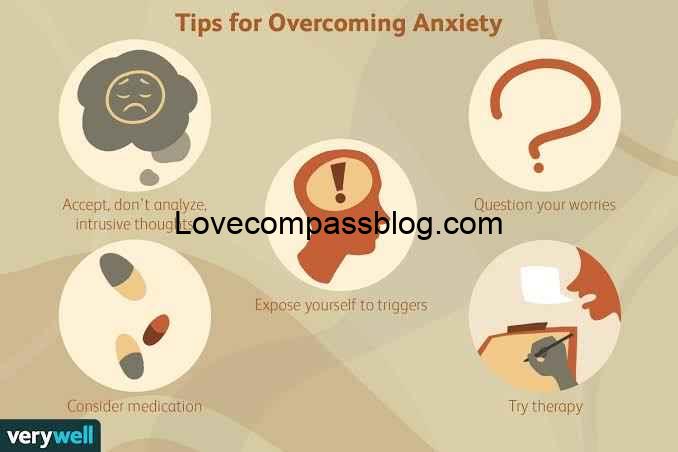
Building Trust and Security
Trust and security are the cornerstones of any healthy relationship. Building and maintaining these elements requires consistent effort:
- Consistent Actions: Reliability in words and actions builds trust over time. Keeping promises, being there for your partner, and demonstrating commitment through consistent behavior helps establish a secure foundation.
- Transparent Communication: Openly sharing your thoughts, feelings, and experiences with your partner fosters transparency. This openness reduces misunderstandings and builds mutual trust.
- Mutual Support: Supporting each other in personal and relationship challenges strengthens the bond and enhances the sense of security within the relationship.
Enhancing Self-Esteem and Emotional Stability
Improving self-esteem and achieving emotional stability are crucial in reducing relationship anxiety. Steps to consider include:
- Engaging in Self-Care: Prioritizing activities that boost your well-being and self-confidence can help combat feelings of inadequacy. This might involve regular exercise, pursuing hobbies, or spending time with loved ones who uplift you.
- Affirming Your Worth: Practicing positive affirmations and focusing on your strengths can gradually build your self-esteem. Recognize and celebrate your achievements, both big and small.
- Professional Support: For those struggling with deeply ingrained self-esteem issues, therapy can offer valuable tools and insights for building a healthier self-image.
Addressing Fear of Commitment and Intimacy
Confronting fears of commitment and intimacy is essential for a healthy, fulfilling relationship:
- Gradual Progression: Allow the relationship to evolve naturally, giving yourself time to adjust to deeper levels of commitment and intimacy at a comfortable pace.
- Identifying Underlying Fears: Reflect on specific fears that may be driving your anxiety around commitment or intimacy. Understanding these fears is the first step toward addressing them.
- Establishing Boundaries: Healthy boundaries are essential for balancing intimacy with personal comfort. Communicate your boundaries clearly with your partner and respect theirs as well.
Common Questions and Misconceptions about Relationship Anxiety
Duration of Relationship Anxiety
The duration of relationship anxiety varies depending on its root causes and how it is addressed. Some individuals may experience it briefly, particularly in response to specific stressors, while others may struggle with it over extended periods. The key to minimizing its duration is to recognize the anxiety early, implement coping strategies, and seek help if necessary.
Overcoming Relationship Anxiety Independently
While some individuals can manage and overcome relationship anxiety independently through self-help strategies like mindfulness and self-reassurance, others may find it challenging without external support. It’s important to assess the severity of the anxiety and be open to seeking professional guidance if self-help measures are insufficient.
Understanding the Source of Unease in a Relationship
Feelings of unease can arise from various sources, not all related to relationship anxiety. It’s essential to distinguish between general discomfort caused by unresolved issues within the relationship and anxiety rooted in personal insecurities or past experiences. If the unease is persistent and not based on identifiable problems within the relationship, it may be more likely related to anxiety. On the other hand, if specific behaviors, conflicts, or unmet needs are contributing to the discomfort, addressing those issues directly with your partner is crucial.
Communicating Anxiety to Your Partner
Explaining relationship anxiety to your partner can be challenging but is necessary for fostering understanding and support. It’s important to approach the conversation with honesty and clarity, avoiding blame. Start by sharing your experiences and how the anxiety affects you, then express your needs for support. For example, you might say, “I’ve been feeling anxious lately, and it’s causing me to overthink our relationship. I need your help in understanding these feelings and working through them together.”
Misconception: Relationship Anxiety Equals Lack of Love
A common misconception is that experiencing anxiety in a relationship means you’re not truly in love or that the relationship is doomed. This is not necessarily the case. Relationship anxiety often stems from personal insecurities, past traumas, or attachment issues rather than a lack of love or compatibility. It’s possible to deeply love your partner while still feeling anxious. The key is to address the anxiety constructively rather than letting it dictate the course of the relationship.
Supporting a Partner with Relationship Anxiety

Understanding Their Perspective
Supporting a partner with relationship anxiety requires empathy and patience. Understanding that their anxiety is often irrational and not reflective of reality is crucial. They may need extra reassurance and validation, but it’s also important to encourage them to work on self-soothing techniques.
Creating a Safe Space for Open Communication
Establishing a safe space where your partner feels comfortable discussing their anxieties without fear of judgment is essential. Encourage them to share their thoughts and feelings openly and listen actively without dismissing their concerns. This approach fosters trust and helps them feel secure in the relationship.
Encouraging Professional Help
If your partner’s anxiety is severe and affects the relationship significantly, gently suggesting professional help might be necessary. Therapy can provide them with the tools and support needed to manage their anxiety more effectively. Couples therapy may also be beneficial in navigating the challenges together.
Balancing Support with Boundaries
While offering support is important, it’s equally crucial to set healthy boundaries. Encourage your partner to take responsibility for managing their anxiety rather than relying solely on you for reassurance. This balance helps prevent the anxiety from overwhelming the relationship and allows both partners to maintain their emotional well-being.
Conclusion
Relationship anxiety can be a challenging experience, but it doesn’t have to define your relationship. By understanding its causes, recognizing the signs, and applying effective strategies, you can manage and even overcome it. Building trust, enhancing self-esteem, and fostering open communication are key steps in this journey. Whether through self-help or professional guidance, addressing relationship anxiety can lead to a more secure and fulfilling partnership, ultimately strengthening the bond with your partner.

